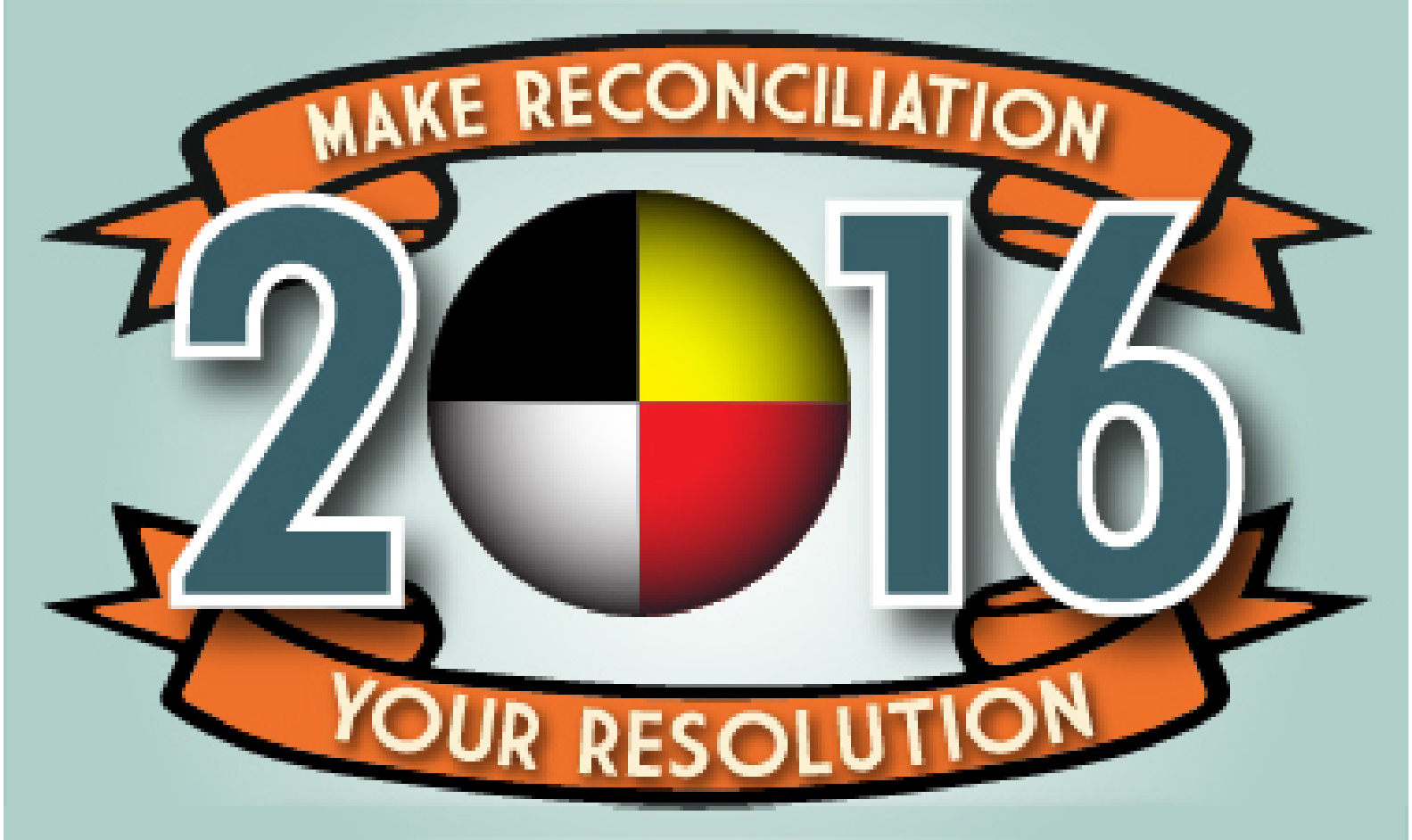rabble is expanding our Parliamentary Bureau and we need your help! Support us on Patreon today!
This holiday season rabble has partnered with Aboriginal Legal Services of Toronto to launch a campaign urging Canadians to take up implementing the recommendations of the Truth and Reconciliation commission as a new year’s resolution for 2016. Here’s how.
This week, we’re talking about churches, and how to make recommendation #59 a reality. This is recommendation #59:
We call upon church parties to the Settlement Agreement to develop ongoing education strategies to ensure that their respective congregations learn about their church’s role in colonization, the history and legacy of residential schools, and why apologies to former residential school students, their families, and communities were necessary.
Church involvement was foundational to the residential school system in Canada, since the federal government essentially left the administration and operation of the schools up to the churches.
The majority of schools were run by different entities within the Catholic Church (62) with the Anglican Church taking on operation of 32 schools. Other denominations (Methodist, United, Presbyterian) took charge of much smaller numbers of schools.
Just as the extent to which certain denominations were involved in the IRS system varied, so too has the nature of their responses and apologies.
The United, Anglican and Presbyterian Churches have all issued formal apologies, as have some orders of the Catholic Church (such as the Oblate Missionaries of Mary Immaculate).
However, the Pope has still not issued a formal apology to residential school survivors, despite apologizing for colonialism earlier this year. Along with the federal government, various churches were party to the Settlement Agreement that compensated survivors and funded the TRC.
Do you belong to a church? If so, there are some very clear precedents for how to proceed if you want to implement call to action #59 in your life.
First, find out if your parish has a committee or working group set up to deal with residential schools, the Truth and Reconciliation Commission, or Indigenous issues more generally. Many churches (particularly the United Church) have set up groups in the wake of the TRC to educate their parish members and the general public.
Is there a social justice or Indigenous issues group at your Church? If not, start one!
Pamela Thomson of the Anglican Church of the Redeemer in Toronto started an Aboriginal Issues Working Group several years ago when she realized that discussion around such issues was missing at her church. The group now organizes talks, film screenings, and teach-ins on a variety of issues pertaining to and extending beyond residential schools in Canada.
The United Church and the Anglican Church have also begun working to implement the TRC recommendations at the national level, and have begun compiling resources for individual parishes to use.
For example, the United Church recently recommended that its ministers acknowledge the Indigenous lands the church sits at the beginning of each service. Liz Tinker, chair of the Social Justice Committee at Bloor Street United Church, says that recently her church has begun acknowledging Toronto’s status as a city built on Wendat, Haudenosaunee, Anishinaabe and Mississauga territory.
If you are going to begin a committee or group of some kind, make sure you have the support and participation of Indigenous members of your church and community. The Church of the Redeemer’s Aboriginal Working Group consists of three residential school survivors in addition to non-Indigenous members of the church.
Finally, Thomson emphasizes that “you have to pay people for their time,” so she seeks funding from her church and partners with other organizations in order to offer speakers an honorarium.
Expecting Indigenous people (whether or not there are residential school survivors) to speak at your event for free risks replicating colonial power structures — something you want to avoid if you are trying to decolonize your church.
Non-religious Canadians who don’t belong to a church may think they are exempt from Call to Action #59. However, it is important to remember that all non-Indigenous Canadians have benefited in some way from the colonial processes the churches helped to facilitate. So learning about church involvement in colonization and residential schools is an important part of anyone’s process of decolonization.
So, as a non-religious person, how can you implement recommendation 59?
First, learn about the history. Maybe you aren’t religious now, but attended church when you grew up. Learn about that church’s involvement in residential schools.
Second, learn about the history of residential schools in the area where you live, and which churches ran the schools there. A lot of regionally specific histories are have been recently published. They offer detailed information about residential schools and the ways in which government and churches cooperated in their administration. Some examples include Indian School Road by Chris Benjamin, about Shubenacedie School in Nova Scotia, and They Called Me Number One by Bev Sellars, a memoir about St. Joseph’s Mission in Williams Lake, B.C.
Finally, many churches hold events that are open to the public. Church of the Redeemer in Toronto has held two events around Missing and Murdered Indigenous Women and Girls, and partnered with other local churches last year to screen Niiganibatowaad: Front Runners, about athletes at a residential school in Manitoba.
A group called Iskwewuk E-wichiwitochik (Women Walking Together), located in Saskatchewan, has frequently partnered with the Anglican Diocese of Saskatoon to organize educational events and raise awareness about violence against Indigenous women.
Look up churches in your area to see if they are holding events that are open to the public.
Make reconciliation your resolution in 2016.
For weekly updates on how to make the calls to action a reality, click this link.
This series is produced in partnership with Aboriginal Legal Services of Toronto (ALST).
Christina Turner is doctoral student in the department of English at the University of Toronto. She was rabble’s books and blogs intern from 2013-2014.
rabble is expanding our Parliamentary Bureau and we need your help! Support us on Patreon today!




